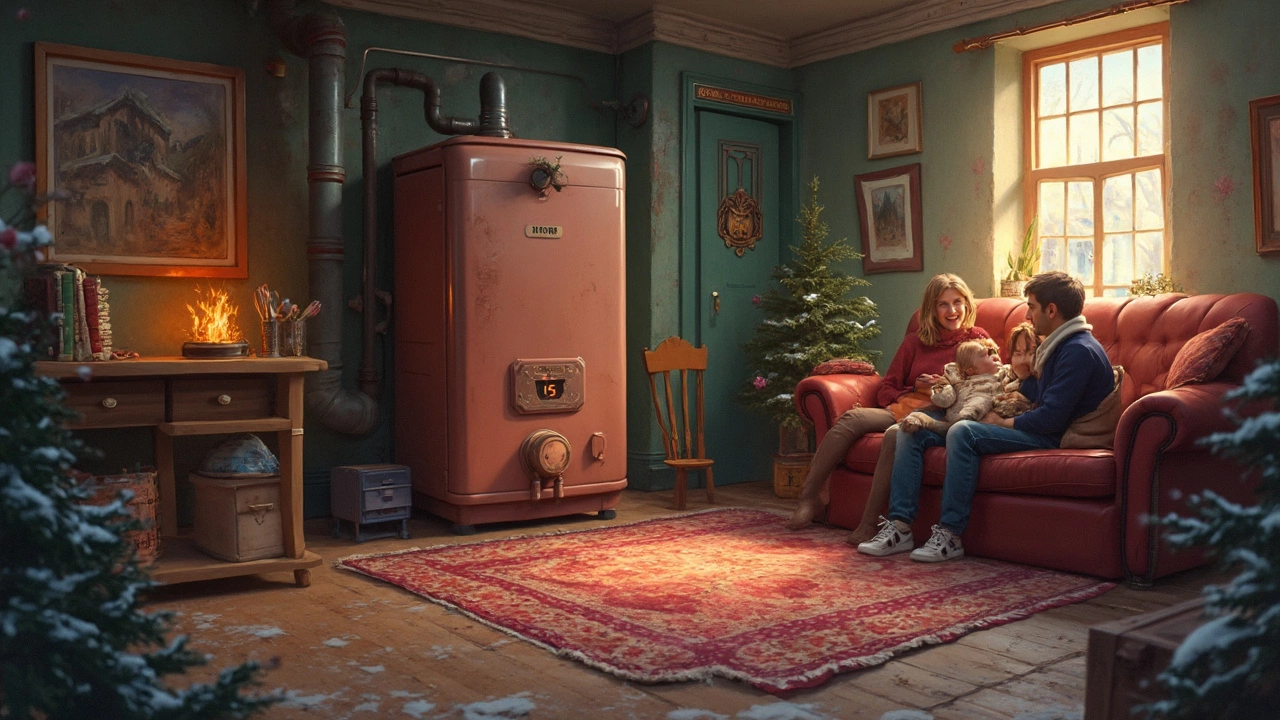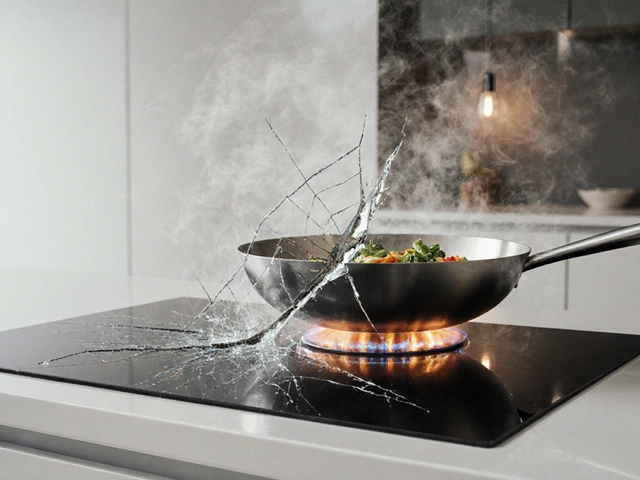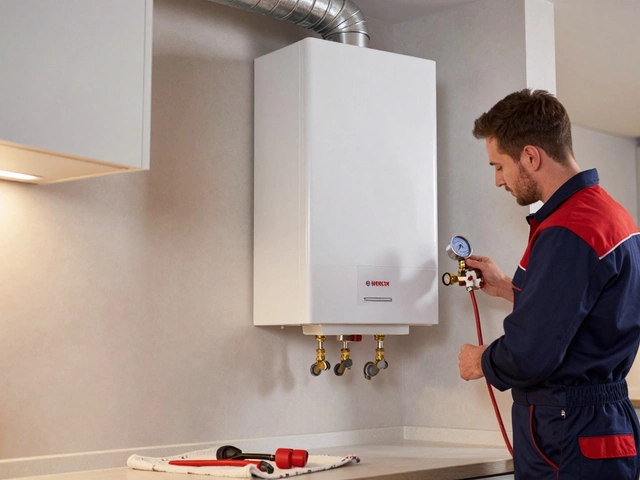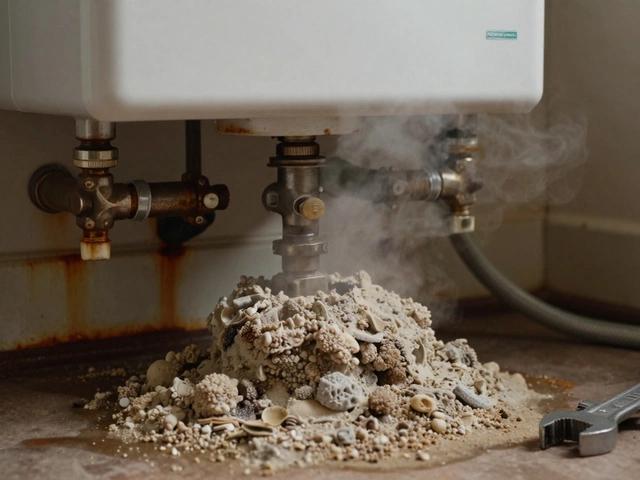So you're wondering how many good years you can squeeze out of your boiler. Honestly, the lifespan of a boiler can vary, but you're typically looking at around 10 to 15 years. Surprised? Well, it largely depends on how well you maintain it and the type of boiler you've got. Some go the distance to 20 years, but let's be realistic—pushing it too far might cost you more in the long run.
Now, what affects its lifespan? Regular maintenance is like magic for boilers. Skipping those annual checks might seem like a way to save cash, but it’s a bit like ignoring strange noises in your car. Sooner or later, those little issues can turn into big, expensive problems. And if your boiler sounds like an old clanking heater, it might be whispering that it's time for retirement.
And here’s a tip you might not know—hard water can be a silent boiler killer. Strange, right? The minerals from hard water accumulate and can make your system work harder, shortening its life. So, if you live in a hard water area, consider a water softener to help your boiler relax and live a bit longer.
- Understanding a Boiler's Lifespan
- Signs Your Boiler Might Be Fading
- Boosting Your Boiler's Efficiency
- When Replacement Makes Sense
- Choosing the Right New Boiler
- Cost-Saving Tips for Boiler Maintenance
Understanding a Boiler's Lifespan
When it comes to boilers, understanding how long they last can be a bit like predicting the weather. A typical boiler lifespan ranges from 10 to 15 years, but a few factors can push it either side of those numbers. Regular maintenance is crucial. It's no secret that a well-maintained boiler lives longer and performs better. Ignore your boiler, and you could be replacing it sooner than you'd like.
So what goes into that boiler lifespan? One key aspect is the type of boiler. For instance, modern condensing boilers tend to have a longer life expectancy thanks to their efficient technology. Did you know that these boilers can hit up to 98% efficiency? Compare that to older models that might hover around 70%. Knowing what you've got under the hood can really tell you what to expect.
Maintenance Matters
The regular upkeep of boilers involves more than just an annual service. Think of it like a dental check-up—it might not seem crucial now, but it prevents painful surprises later. It's important to keep an eye on parts like heat exchangers and pressure valves. These elements can sneakily wear down over time.
- Annual servicing - Think of this as your boiler's annual health check.
- Keep an ear out - Strange noises can be early signs of issues.
- Water quality - As we touched on, hard water accelerates wear and tear.
Age Isn't Just a Number
Don't just rely on the calendar. Pay attention to signs like increased fuel bills, less heat, or more frequent breaks. Sometimes, these signs are telling you what the numbers can't. Remember, a boiler that’s had a hard life might not make it past 10 years. Conversely, a cared-for boiler could chug along happily past the 15-year mark.
Here's a little tidbit: In the UK, the government predicts that up to 60% of homes replace their boilers every 12 years on average. So, if you're approaching that decade mark, start paying attention to its health and performance.
Signs Your Boiler Might Be Fading
Even the most reliable boilers will start showing signs of aging at some point. But how do you know when yours is on its way out? Here are some signs to watch out for that might indicate it's time to think about a replacement.
1. Unusual Noises
If your boiler sounds like it's hosting a rock concert, that's not just background music. Banging, whistling, or gurgling noises often mean there’s trouble brewing. You might have an issue with internal parts, like the heat exchanger or the pump.
2. Increased Energy Bills
Nobody likes getting a higher energy bill, and if yours has been creeping up without a change in usage, your boiler could be losing efficiency. An inefficient boiler has to work harder, burning more fuel and costing you more money.
3. Frequent Repairs
If you're on a first-name basis with your repair guy, it might be time for a change. Sometimes it costs more to keep patching up an old boiler than to invest in a new one.
4. Yellow Flame
Your boiler should burn with a blue flame. If it turns yellow, there could be a serious issue with the combustion process, possibly releasing carbon monoxide—a dangerous situation.
5. Radiators Take Forever to Heat
If you find yourself waiting ages for radiators to warm up, it might be a sign your boiler is struggling to keep up. It might be having trouble heating the whole system or distributing the heat efficiently.
And there you have it—some key indicators to look out for. Remember, keeping an eye on these signs can save you from waking up to a freezing house or, worse, dealing with an emergency when things go south. Boiler replacement isn't just about saying goodbye to an old friend; it's about keeping your home safe, warm, and cost-effective.
Boosting Your Boiler's Efficiency
Want to get the most out of your boiler? It's all about boiler maintenance and making a few smart choices. Here’s how you can make your boiler work its best without needing a whole new system.
1. Regular Check-Ups
Just like you wouldn't skip a doctor's visit, getting your boiler checked at least once a year can catch problems before they snowball. These checks keep your boiler efficiency high and your stress levels low.
2. Bleed Your Radiators
If you've never ventured into this territory, it's not as intense as it sounds. Bleeding lets out trapped air that can make your system less efficient. Once the air’s out, your boiler won’t have to work overtime just to warm up the place.
3. Power Flush Your System
This might sound like tech jargon, but a power flush is just a deep clean for your pipes. It gets rid of sludge and grime, ensuring that hot water flows smoothly throughout your home. Cleaner pipes mean a more efficient boiler. Here’s a quick look at how it works:
- It clears out debris and move the gunk.
- Prevents future corrosion and tackles early signs.
- Improves heat distribution—it’s like a spa day for your boiler!
4. Insulate Your Pipes
Of course, nobody wants frozen pipes, right? Insulating them prevents heat from escaping, meaning your boiler lifespan and efficiency can take a breather. Plus, it keeps those winter heating bills in check.
5. Upgrade Your Thermostat
If you’re using a thermostat older than yesterday's milk, it might be time to upgrade. Smart thermostats are in, and they can optimize heating schedules based on your usage patterns, saving energy and a few bucks too. It's an easy way to manage boiler maintenance effortlessly.
Boosting your boiler's efficiency isn't rocket science. Just a few tweaks here and there, and you're looking at lower bills and a happier boiler. Keeping it simple but effective—that's the game plan.
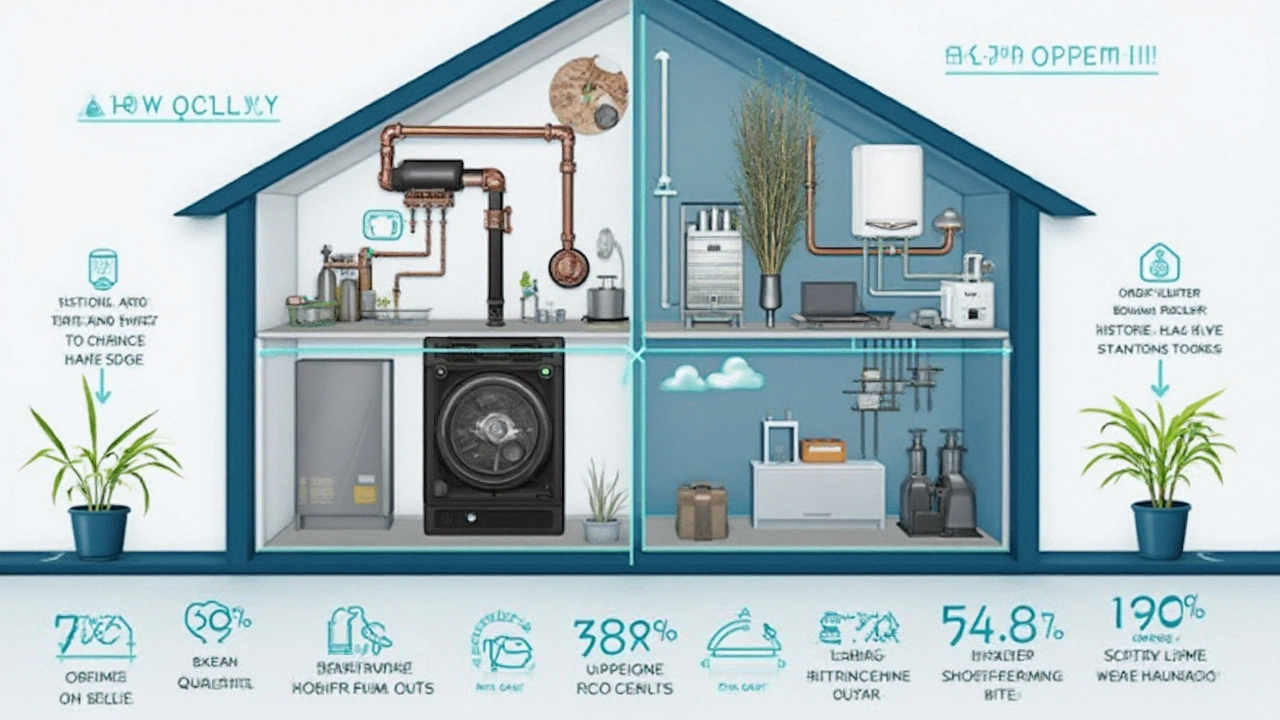
When Replacement Makes Sense
You've done everything you can to keep your boiler going, but there comes a point when replacement is the smart move. First off, pay attention to your energy bills. A sudden spike in costs might mean your boiler's efficiency is declining, and it's chewing through more fuel to produce the same amount of heat. It’s like the difference between your old beat-up car and a shiny new hybrid. Boiler efficiency is crucial to keep costs down.
Another red flag is frequent repairs. If you're on a first-name basis with your repair technician, it might be time to let go. Constant repairs are not just a nuisance; they add up financially and can mean your boiler is on its last legs.
Odd Noises and Leaks
Strange banging, whistling, or humming coming from your boiler? These noises aren't just spooky—they're signals something might be seriously wrong. Leaks are a major headache. Constantly mopping up water around your boiler can lead to water damage and mean a replacement is a better idea.
The Age Factor
As boilers reach the end of their 15-year lifespan, they often become less efficient and more prone to breakdowns. It’s an excellent time to consider replacement, especially with all the high-efficiency models available today that can save you money and headaches in the long run.
| Age of Boiler | Typical Maintenance Cost Increase |
|---|---|
| 5-10 years | 10%-20% |
| 10-15 years | 20%-35% |
| 15+ years | 35%-50% |
This table gives a rough idea of how maintenance costs can climb as your boiler ages. It might be more cost-effective to invest in a new one rather than continue patching up your old system.
Environmental Considerations
Besides saving bucks, swapping an old boiler for a new, environmentally friendly model can also reduce your carbon footprint. If you're looking to go green, many new boilers are designed to meet energy-saving standards.
Choosing the Right New Boiler
Alright, so it’s time to replace your old boiler, and you're scratching your head about which new one to pick. Let’s break it down. Choosing the right new boiler is crucial for keeping your home warm and your energy bills friendly.
Types of Boilers
First up, you’ve got a couple of main types to consider: combi boilers, system boilers, and conventional (or regular) boilers. Combi boilers are super popular because they provide both heating and hot water without the need for a separate tank. Great for smaller spaces, right?
System boilers might be your go-to if you've got a bigger home. They heat water from a small tank, so they're not relying on the mains pressure. Lastly, conventional boilers are your best bet if you’ve got older radiators or a fancy bathroom with multiple spas all going at once.
Fuel Type and Efficiency
Another thing to think about is the fuel. Most folks use gas boilers, but if you’re off the grid, oil or even electric might be your friend. Check the efficiency rating too. You want something in the 90s for sure. The higher the efficiency, the lower your bills.
Size Matters!
Now, when it comes to size, it's not about bigger being better. A boiler that’s too powerful for your space will waste energy, while an underpowered one will leave you shivering. Get a pro to calculate the correct size based on your home’s heating needs. Sound boring? Maybe, but your wallet will thank you.
Consider All Costs
Don’t forget to consider installation costs and any necessary upgrades. A new boiler might require new piping or additional controls. It's upfront stuff too, so factor it into your budget.
| Boiler Type | Best For | Considerations |
|---|---|---|
| Combi | Small to Medium Homes | Instant Hot Water, No Tank Needed |
| System | Medium to Large Homes | Better with Thermostatic Radiator Valves |
| Conventional | Large Homes with Multiple Bathrooms | Needs Space for Water Tanks |
Hopefully, this rundown helps make picking a new boiler just a bit less daunting. Remember, it’s an investment, so take the time to choose wisely!
Cost-Saving Tips for Boiler Maintenance
Keeping your boiler running smoothly doesn't have to drain your wallet. With a few smart maintenance habits, you can extend its life and save on expensive repairs. Here are some cost-effective strategies to keep your boiler in top-notch condition without breaking the bank.
1. Regular Check-Ups
Scheduling annual check-ups is a must. Think of it as a health screening for your boiler. A professional can spot potential issues before they turn into costly bills. Plus, a yearly service is usually cheaper than an emergency repair or even a full boiler replacement.
2. Bleed Your Radiators
Air traps in your radiators can make your system inefficient. Bleeding them can improve performance, which means your boiler won't have to work as hard. It's simple, quick, and a great way to keep your heating costs down.
3. Insulate, Insulate, Insulate!
We can't stress enough how important insulation is. Pipe insulation is cheap and helps retain heat, making your system more efficient. It also prevents winter freezes, which can be a costly headache.
4. Keep an Eye on Pressure
Boiler pressure that’s too low or too high can lead to inefficiency and wear and tear. Regularly check your boiler's pressure gauge to ensure it stays in the optimal range. If you're not sure what's ideal, refer to your boiler's manual or consult a professional.
5. Smart Thermostats
Invest in a smart thermostat. It optimizes your heating schedule based on your habits, saving you precious energy and money. Sure, there's an upfront cost, but the savings over time can be substantial.
6. Look for Warning Signs
Strange noises, leaks, or a funny pilot light are red flags. Don’t ignore them! Tackling small repairs early can prevent massive breakdowns later.
By following these tips, you're doing your part to ensure your boiler lifespan is maximized while keeping maintenance costs manageable. A little effort goes a long way in making sure your home stays warm and your wallet stays happy!

